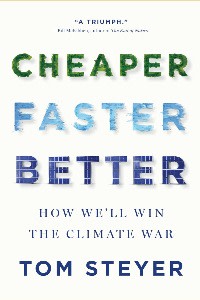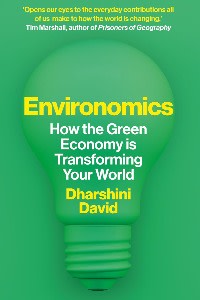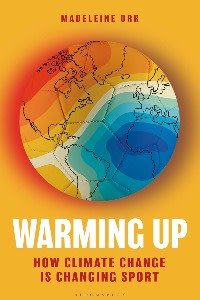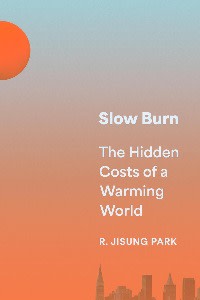Unlock Editor’s Roundup for free
Roula Khalaf, editor of the FT, picks her favorite stories in this weekly newsletter.
Global warming is no longer a distant problem. Rising temperatures are already changing the way people play sports, garden, run companies and learn in school, a new set of climate books shows. But all is by no means lost, writes billionaire investor Tom Steyer in his witty and admirable call to arms. Cheaper, faster, better: How we will win the climate war (Spiegel & Grau, $28).

Steyer is best known for spending millions of dollars in an effort to be the Democratic nominee in the 2020 U.S. presidential race. But his years of climate activism in total have cost him “between three and $10 billion — and maybe much closer to 10″, he writes. This makes him what he calls a “climate person,” a rewarding way of living, by his account, that he thinks we can all follow if we choose.
It highlights the work of others on developing climate-friendly food, greener steel and smart techniques to measure carbon dioxide. But some of its most enjoyable parts are insightful revelations about the people on the other side of the climate war. That includes an academic at his alma mater, Stanford, whom Steyer once confronted for resisting calls for the university to divest from fossil fuels.
“This professor with a PhD, helping to lead what might be the premier university in the richest country on earth, turned to me and said, ‘I’m going to start listening to these kids about climate when they stop drive their cars’. writes Steyer. Oh.

Dharshini David, the BBC’s chief economics correspondent, offers a much gentler assessment of the environmental pressures on Environment: How the green economy is transforming your world (Elliott & Thompson, £22)
Its 12 chapters cover how green imperatives affect our daily lives. The first chapter shows the moment we turn on a light, powered by cleaner electricity. The second chapter, “Getting Dressed”, is about clothing made by increasingly environmentally conscious fashion brands. Chapter three, “Checking Your Phone,” assesses technological waste, energy use, and materials. And so on. By the time readers reach the final chapter, in the weekly shop, they should have gotten the gist of some of the questions raised by the need to rapidly decarbonize the global economy, if not all of the answers. As David writes, this book is intended to be more of a guide than a definitive list of solutions.

Many solutions are suggested Warming up: How climate change is changing sport (Bloomsbury£20) by University of Toronto academic Madeleine Orr. For starters, it would ensure that new sports facilities are only built in locations that make climate sense, meaning no more winter sports venues in warm climates, or desert golf courses, or stadiums that cover natural spaces.
The need for such measures is evident considering the number of athletes who have already succumbed to heatstroke in a warming world. Orr brings their stories to life with boldness. It also describes the growing financial problems facing snow sports companies struggling with increasingly unreliable snow levels.
This includes the “100-day rule” in skiing, which states that, due to all personnel, marketing and energy costs, a ski area must be open about 100 days per season to be financially viable. “We’re getting dangerously close to that number on both sides of the Atlantic, especially in low-elevation resorts,” reports Orr.

There’s more bad news The Slow Burn: The Hidden Costs of a Warming World (Princeton University Press, $29.95/£25.00) by R Jisung Park of the University of Pennsylvania. Drawing on his own research, Park describes the subtle changes caused by everything from wildfire smoke to rising temperatures.
Above-average temperatures, for example, reduce learning rates in schools. Additionally, because black and Hispanic students tend to live in places where heat during the school year is more frequent and classrooms are less likely to have air conditioning, there may be a widening racial achievement gap.

A more meditative tale unfolds within The Accidental Garden: Gardens, Deserts, and the Space in Between (Profile Books, £12.99) by Richard Mabey, a pioneer of British nature writing. In less than 160 pages, Mabey tells the story of the two acres of land surrounding the 16th-century Norfolk farmhouse he and his partner, Polly, moved to in 2003.
She was a compulsive cultivator. He was a bare-handed instinctive. Their garden forms the backdrop for a discursive, philosophical memoir about everything from the human desire to shape nature to what Mabey calls the ambiguous experience of gardening in the midst of an environmental emergency.
In a world of relentless physical change, where climate is affecting everything from a football game to a shopping trip, it’s a reassuring reflection on nature’s enduring resilience.
Filita Clark is an FT business columnist
Join our online book group on Facebook at FT Books Café and subscribe to our podcast Life and Art wherever you listen
#impact #climate #sport #call #arms #environmental #book #review
Image Source : www.ft.com